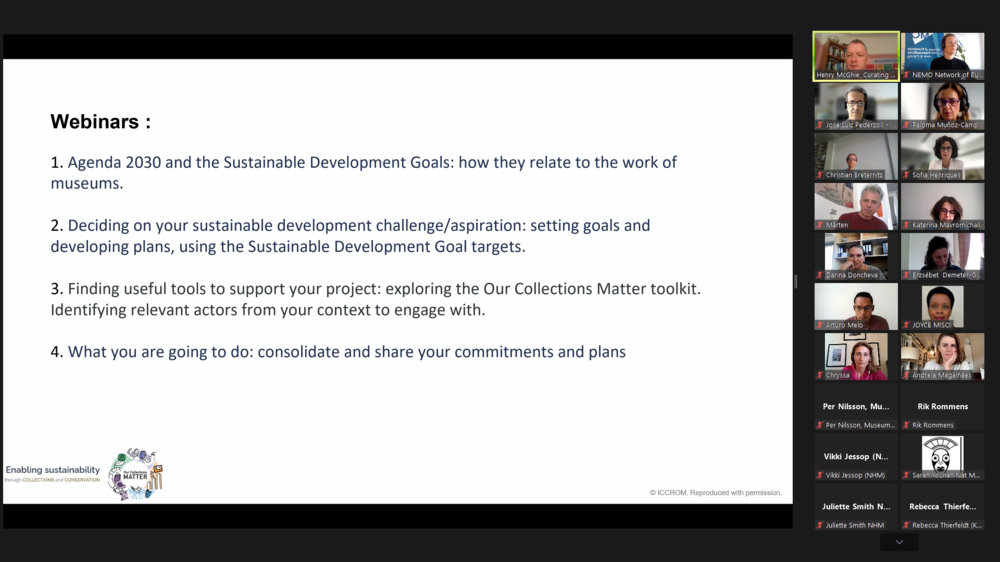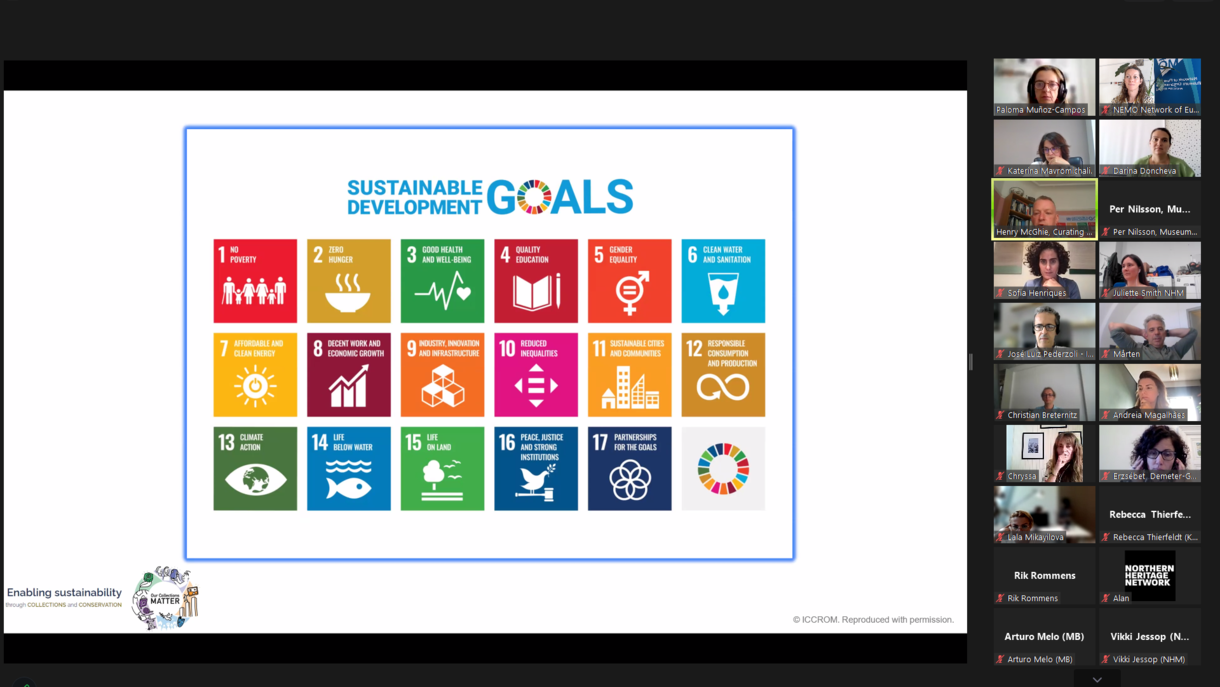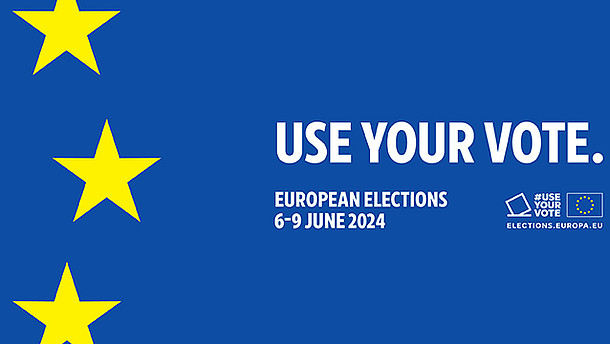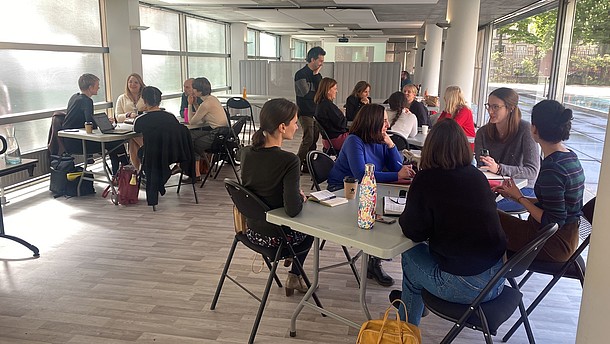NEMO and ICCROM decided to collaborate on this workshop series with the shared aim of developing capacity in museum workers to completely understand sustainable development and the Sustainable Development Goals (SDGs), to formulate key SDG-oriented challenges or aspirations to be addressed through their collections-based work, and to make and successfully implement a plan to put their ideas into practice.
NEMO Training guided participants to unlock the power of museums for Sustainable Development
Henry McGhie was invited as one of the workshop facilitators. He has a background as an ecologist, museum curator and manager. He runs the UK-based consultancy Curating Tomorrow and works as a consultant on ICCROM’s Our Collections Matter programme. Henry was joined by José Luiz Pederzoli Jr. who is the Unit Manager of the Strategic Planning for ICCROM - International Centre for the Study of the Preservation and Restoration of Cultural Property. He has a background in polymer chemistry and paper-based heritage.
Workshop goals and plan
The workshops drew on resources created by ICCROM’s Our Collections Matter initiative, notably the online Toolkit, an open access resource including over 400 practical tools gathered from the heritage sector and beyond. ICCROM’s Our Collections Matter initiative aims to empower heritage professionals and organisations to take part in sustainable development, by making concrete contributions to address real-world challenges through collections-based work.

In the sessions Henry and José explained that:
- The UN Agenda 2030 and its 17 Sustainable Development Goals (SDGs) are set out as an invitation to all parts of society to take part in creating a better future.
- Museums can play many roles in this, through caring for and providing access to collections, education, public participation, creating jobs, training, partnerships, research and more. They also need to manage their negative impacts, for example heavy use of natural resources, and where they marginalise and exclude people.
- Sustainable development approaches help us to "do better and do less harm", focusing on addressing the big challenges facing people and nature locally and globally.
“I feel like a kid in the candy shop!”
Throughout the training, the participants learned more about the Agenda 2030 and the Sustainable Development Goals; and how they relate to the work of museums. Henry made them understand national and local challenges; recognising how their organisation contributes positively and negatively to sustainable development.
From the second session onwards, the training series became very interactive as every participant decided on their own sustainable development challenge: setting goals and developing plans, using the Sustainable Development Goal targets.
While exploring the Our Collections Matter toolkit, participants found useful tools to support their project ideas. One participant said: “I feel like a kid in the candy shop! There is so much to choose from.”
After completing all four sessions, participants summarised that they were very grateful for this workshop to systematise the ideas they already had in mind. Some felt like a blank canvas when they started this workshop and by the end of the sessions, they had concrete projects for the next 12 months in their hands. The training was a very useful guidance for all participants and of course the opportunity to exchange ideas with colleagues from all over Europe and beyond is always a great plus.
- Learn more about NEMO's Training offers.
- At the NEMO European Museum Conference 2023 “and… ACTION! Museums in the climate crisis” we will continue the conversation by exploring how museums can take action for the climate and a sustainable future. Join us for one of the most important European museum conferences of the year!





